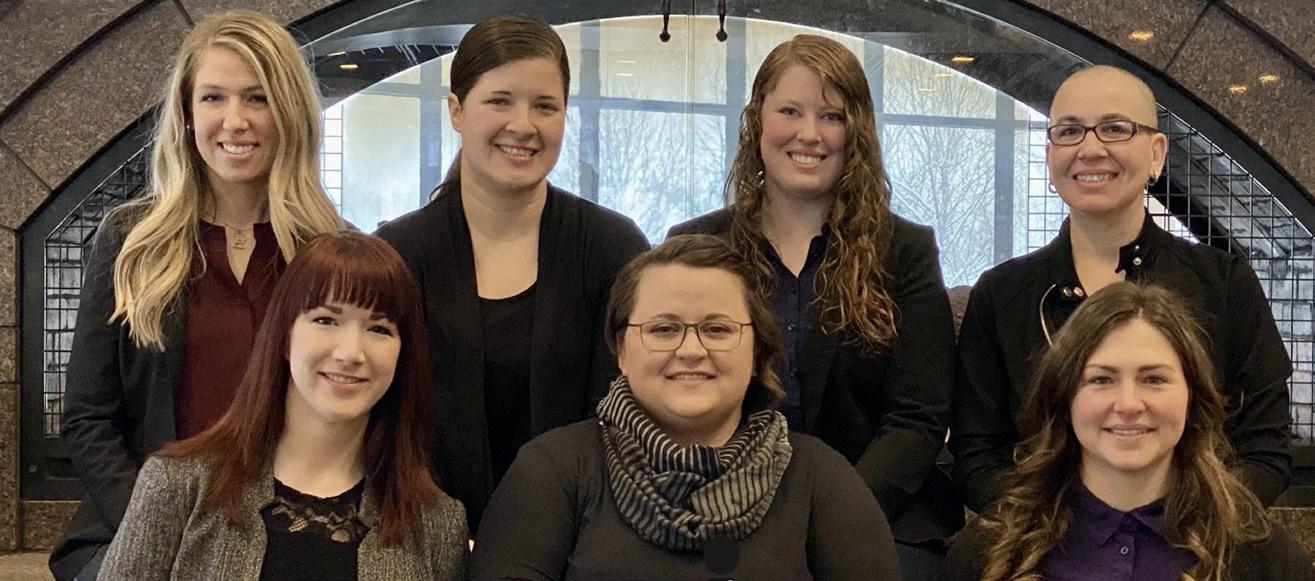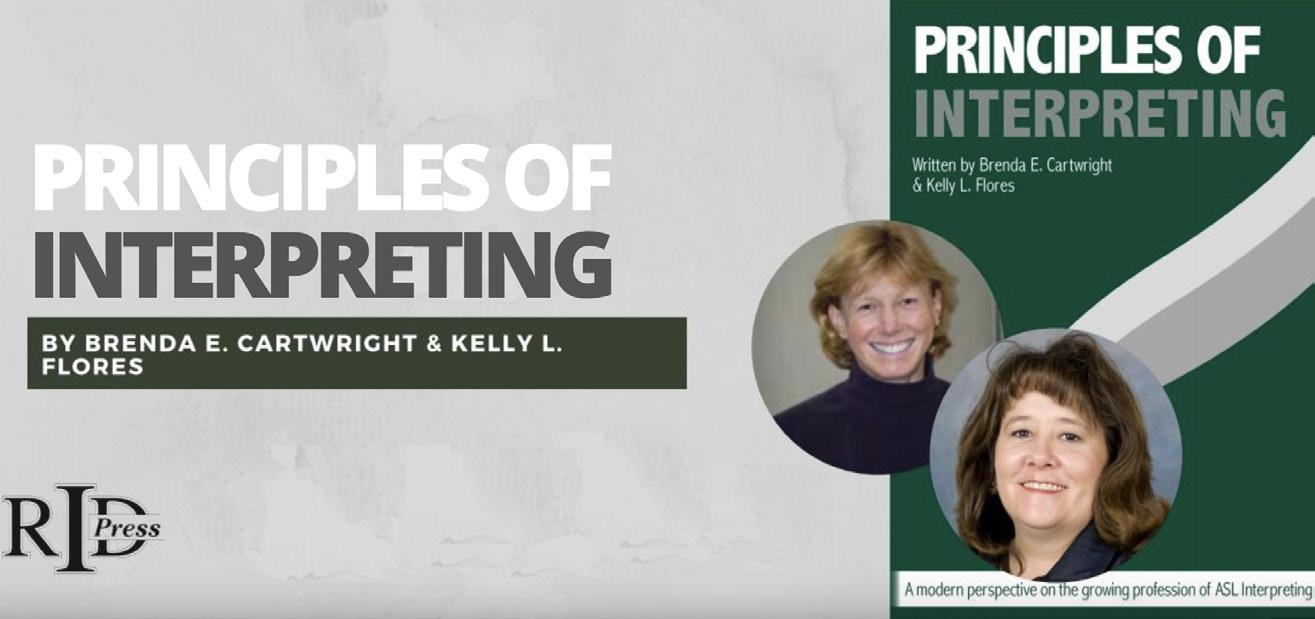
5 minute read
Affiiliate Chapter Corner
https://youtu.be/NCykcPA49QY Affiliate Chapter Corner Learning and Growing in the Pandemic Era
COLUMN
Dr. Carolyn Ball, CI and CT, NIC RID Affiliate Chapter Liaison
Carolyn Ball and Minnesota RID President Tara Grammenos discuss current events in the state of Minnesota
Carolyn Ball: What has been the response to the COVID-19 pandemic? Has your state been receptive to providing Deaf Interpreters at the Emergency Meetings?
Tarra Grammenos: We’ve been very lucky to have our incredibly talented Programs Director, Nic Zapko, be one of the main Deaf Interpreters to interpret for our press conferences. She’s built up quite a following on social media!
CB: What else is happening in Minnesota that has impacted the Chapter? TG: Over the summer our community had a very raw and honest conversation about racism in the Interpreting and Deaf communities in Minnesota. The conversation was hard, but very much needed. The dialogue led our board to take a serious look at racism and white supremacy within our own organization. Those conversations sparked the idea to establish new scholarships specifically for Interpreters of Color.
We decided to sponsor a fundraiser to fund these scholarships and hosted a webinar panel discussion with eighteen Interpreters of Color from Minnesota. We were overwhelmed with the amount of support that came in. MSRID had 300 participants during the webinar and raised $5,000 for the scholarships! I would love to see other chapters do the same, so if you have any questions on how we did it, please reach out!
CB: You have been a strong and very involved leader as the AC President. What drives you to serve? Why do you want to serve? What can you tell others about the benefits of serv-
ing? TG: This is my third year as president and I can tell you that my presidency today looks very different than when I started on January 1st, 2018. I love this job. I love this organization. I started volunteering with MRID almost 15 years ago, and always had my eye on being
2020 Minnesota RID Board of Directors

Top row (left to right) Megan Bolduc, community relations director; Tarra Grammenos, president; Sydney Groven, operations director; Nic Zapko, programs director Bottom row (left to right) Katelyn Wells, finance director; Michelle Remer, member director; Nicki Mosbeck-Barrett, communications director
president one day. I serve because I’m learning skills I wouldn’t have learned otherwise, such as how to plan conferences and workshops, how to run a business meeting, how to lead a non-profit organization, and work with a large team. These are life skills that I will forever have, thanks to MRID.
CB: What do you wish you had known before you became president of your chapter? TG: How much people expect out of us. Yes, we’re volunteers, but often people treat us as though we’re running MRID like a business, and we have paid staff, and plenty of hours [to work for MSRID]. The reality is that every single person on our board and our committees have a full time job, a family, and other commitments.
CB: What do you wish that RID could have provided you to help you along the way? What could we do better? TG: Turnover of RID board members, regional representatives, and affiliate chapter presidents is common [due to the nature of volunteering]. It is challenging to learn the role of the state chapter president when consistent resources aren’t always available. The Affiliate Chapter Handbook is a valuable resource, but having more of a “mentor program” for new presidents, I think would be great.
CB: How are you handling your annual membership meeting this year amidst the Coronavirus pandemic challenges? TG: We will be hosting our business meeting and awards ceremony on Zoom! The meeting will look very different than we are used to, but it will be a fun challenge.
CB: What is your favorite part of being the president of the MRID Chapter?
TG: My favorite part of being the president is seeing my board and committee members grow as leaders. It’s so much fun to see them
take on different roles within the more folks will step up. Even things organization, and within the com- like website design, graphic design, munity. I love being a part of a team conference planning: these are skills of people who genuinely care about that people pay a lot of money to each other. These people aren’t just learn. Whereas our board and commy colleagues; we’ve all grown to be mittee members have learned these good friends. skills for free with MRID. It’s pretty cool when you think about it that way. CB: What is the hardest part of your job? CB: How do you balance, life, work, and being TG: The hardest part of my job is that there the AC President? aren’t enough hours in the day. MRID does feel like a full time job at times. Sometimes it gets TG: I’m involved in a local survivors of suicide to be a lot between managing the community support group (I lost my brother to suicide needs, the board and committee needs, and three years ago), so being with people who my own family, work, friends, and health. truly “get it” really helps me disconnect from the hectic day to day issues that work and CB: How do you think we can recruit more MRID bring. I also have an adorable chihualeaders to serve in RID chapters? hua who forces me to go on walks around the neighborhood several times a day; although TG: It’s definitely tough to recruit more lead- that will soon end when the Minnesota winter ers. I think we could focus on listing all the benefits and life skills we have learned. Maybe shows up! 5
What did you think of this article? Send your feedback to the authors/editors by clicking here! www.rid.org/views-Nov2020-articlefeedback/











